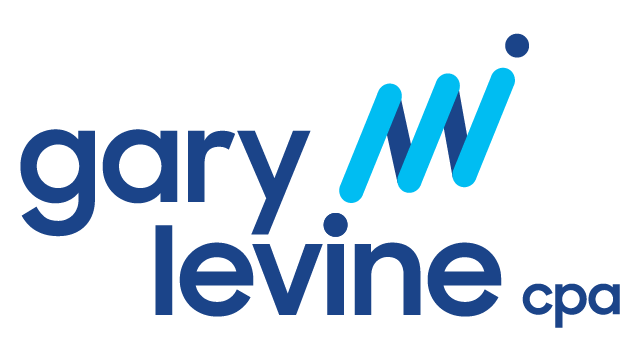How to Spot COVID-19 Tax Scams
If you are reading my posts for the first time then please see the last paragraph below.
$2 Trillion dollars is hard to wrap your head around.
Consider that you could buy 3 million very nice homes. Or, you could buy every NFL, MLB, & NBA team - and do it again another 8 times. That's a lot of money - I know it, you know it, and criminals definitely know it.
We have a perfect financial storm: first, the federal government is disbursing 2 trillion dollars. Second, we are all quarantined forcing us to rely on e-everything – especially financial transactions. Third, our country leads the world in generosity. In 2018, as a country, we donated $428 billion to charity.
As grotesque as it is under normal circumstances, criminals are now dramatically intensifying their efforts to prey on your fear, your generosity, and your limited access to professional assistance.
The fraudulent examples below don’t have to add to your already heightened anxieties. By reading these examples, you will learn how you can protect yourself. And by understanding what the IRS does and does not do, you’ll be well-prepared to take rational actions if you are targeted.
WHAT THE IRS NEVER DOES
They NEVER demand that you use a specific payment method, such as a prepaid debit card, gift card or wire transfer. The IRS will not ask for your debit or credit card numbers over the phone. They NEVER ask for your bank account number. The IRS NEVER accepts payment over the phone.
They NEVER demand that you pay taxes without the opportunity to question or appeal the amount they say you owe. The IRS first mails you a bill if you owe any taxes, and the collection process takes months, not days.
They NEVER threaten to bring in local police, immigration officers or other law enforcement to have you arrested for not paying. The IRS CANNOT revoke your driver’s license, business licenses, or immigration status. Threats like these are common tactics scam artists use to trick victims into buying into their schemes
WHAT THE CRIMINALS DO
In an unusual scheme that involves your own bank account, criminals steal client data from tax professionals and then file fraudulent tax returns. Using the fraudulent tax return, they arrange for a tax refund to be deposited into your bank account via direct deposit. They then resort to various tactics to reclaim the refund from you, including falsely claiming to be from a collection agency or representing the IRS. Phone calls, emails and web sites are used to make the scheme more elaborate.
Recently, thieves are targeting tax professionals, payroll professionals, human resources
personnel, schools as well as individual taxpayers. The criminals use email addresses to pose as a person or organization that you trust or recognize. Then they try to trick you into sending money to a bank account that they control. Several years ago I was targeted by these criminals, I started receiving emails from our CEO to instructing me to wire money to a client account (I didn’t).They also hack email accounts and send mass emails under another person’s name. Or they may pose as a bank, credit card company, tax software provider or government agency. By creating websites that appear legitimate but contain phony log-in pages, these criminals hope you will provide money, passwords, Social Security numbers and other information that can lead to identity theft.
An example of a phone scam is where criminals claim to be calling from a local IRS office. Scam artists have programmed their computers to display the IRS telephone number, which appears on the taxpayer’s Caller ID when the call is made. If the taxpayer questions their demand for tax payment, they direct the taxpayer to IRS.gov to look up the local IRS office telephone number to verify the phone number. The crooks hang up, wait a short time and then call back a second time, and they are able to fake or “spoof” the Caller ID to appear to be the IRS office calling. After the taxpayer has “verified” the call number, the fraudsters resume their demands for money, generally demanding payment on a debit card.
Fraudsters also have been similarly spoofing local sheriff’s offices, state Department of Motor Vehicles, federal agencies and others to convince taxpayers the call is legitimate.
Be alert to bogus letters, emails and letters that appear to come from the IRS or your tax professional requesting information. Scam letters, forms and e-mails are designed to trick taxpayers into thinking these are official communications from the IRS or others in the tax industry, including tax software companies. These phishing schemes may seek personal information, including your mother’s maiden name, passport and account information to steal your identity and assets.
Criminals pose as debt collection agency officials acting on behalf of the IRS. The thief contacts the taxpayer to report an erroneous refund deposit and requests that the taxpayer forward the money to the thief’s collection agency. The taxpayer who received the erroneous refund gets an automated call with a recorded voice saying the caller is from the IRS. The recording threatens the taxpayer with criminal fraud charges, an arrest warrant, and a “blacklisting” of his or her Social Security number. The recorded voice gives the taxpayer a phony case number and telephone number to call to return the refund.
My name is Gary Levine and I am a CPA, tax preparer and fractional CFO living in the West Fan area of Richmond, Virginia. I am studying all aspects of the COVID-related legislation and posting straight-forward, clear explanations as a way to serve our community. I encourage all to ask questions either publicly or privately in this forum. I also encourage you to share freely this information with others.
I am genuinely not trying to be self-serving – I just want to help you navigate through a complex topic in this difficult time.

